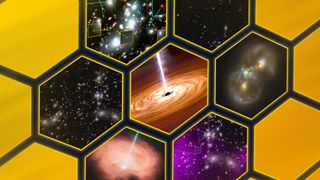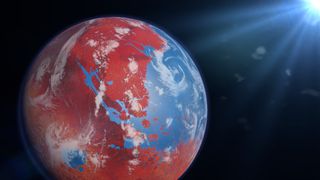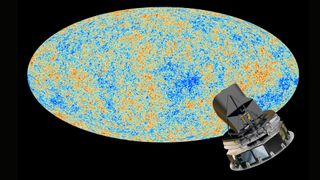Space news, features and articles
Explore Space
Editor's Picks
Latest about Space
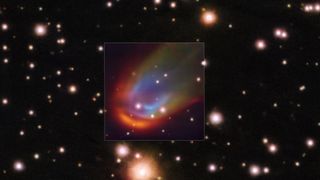
'One of those rare 'wow' moments': Zombie star near Earth has a rainbow shockwave that 'shouldn't be there'
By Harry Baker published
A new study reveals a rare-breaking white dwarf star, dubbed RXJ0528+2838, that is somehow generating a rainbow-like "bow shock" as it zooms through the Milky Way. The cosmic zombie is also ripping apart its partner star like a black hole.
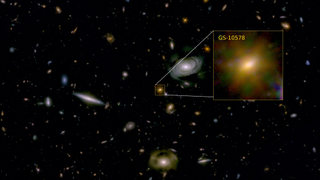
Strange, 'starved' galaxy died 'a death of 1,000 cuts' in the ancient universe, JWST reveals
By Elizabeth Howell published
A supermassive black hole embedded in an early galaxy likely starved the galaxy of gas needed to form young stars, new observations revealed.
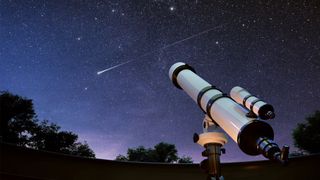
Best telescopes 2026: Explore planets, galaxies and beyond
By Jase Parnell-Brookes last updated
The best telescopes offer an unparalleled view of the cosmos, and we've gathered our favorites.
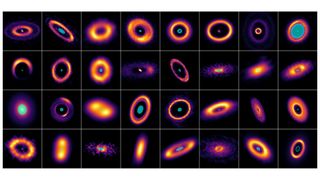
Some objects we thought were planets may actually be tiny black holes from the dawn of time
By Paul Sutter published
Scientists have discovered more than 6,000 planets beyond our solar system. What if some of them aren't planets at all, but tiny black holes in disguise?
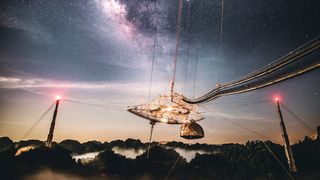
SETI scientists reveal 100 'signals of interest' from collapsed Arecibo Observatory
By Brandon Specktor published
A crowd-sourced search for alien intelligence called SETI@Home is in its final stages, analyzing 100 'signals of interest' with the world's largest radio telescope.
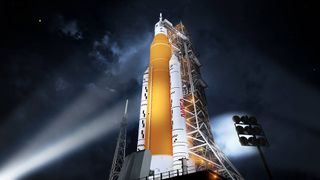
Artemis 2 mission update: Rollout imminent as NASA prepares first crewed Artemis mission to the moon
By Patrick Pester published
NASA's Artemis 2 rollout could be as early as this weekend as the space agency makes final preparations for its first crewed Artemis moon mission.
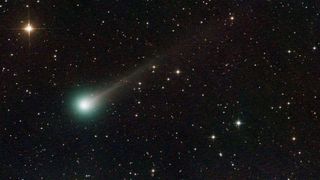
Astronomers may have already spotted the 'Great Comet of 2026' — and it could soon be visible to the naked eye
By Harry Baker published
Recently discovered Comet C/2025 R3 (PanSTARRS) will make its closest approach to the sun and Earth in late April and could potentially be visible to the naked eye. It may end up being the brightest comet of the year.
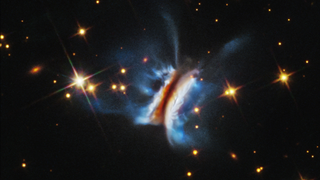
Giant cosmic 'sandwich' is the largest planet-forming disk ever seen — Space photo of the week
By Jamie Carter published
A strange, sandwich-shaped object is giving astronomers a rare view of the chaotic birthplaces of planets.
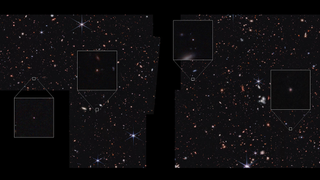
Oddball 'platypus galaxies' spotted by James Webb telescope may challenge our understanding of galaxy formation
By Elizabeth Howell published
Astronomers spotted nine galaxies with characteristics that have never been seen as a collection before. It's possible this is a newly found type of star-forming galaxy.
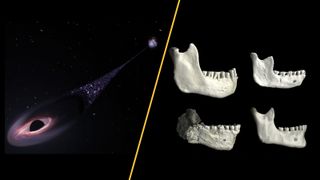
A runaway black hole, a human ancestor discovered in Casablanca cave, and vaccine schedule slashed
By Ben Turner published
Science news this week Jan. 10, 2025: Our weekly roundup of the latest science in the news, as well as a few fascinating articles to keep you entertained over the weekend.
Get the world’s most fascinating discoveries delivered straight to your inbox.
 Live Science Plus
Live Science Plus





